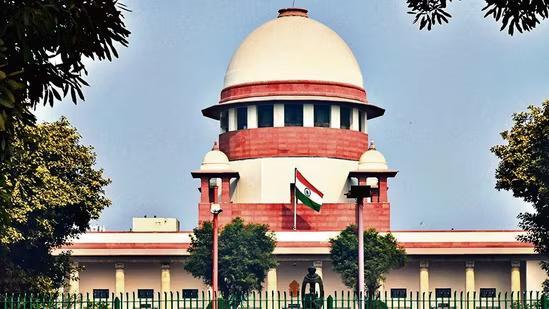
No Action Against Owners of 10 & 15-yr-old Diesel & Petrol Vehicles for 4 Weeks: SC
In a significant ruling, the Supreme Court has stayed the ban on old diesel and petrol vehicles in Delhi, giving a four-week reprieve to their owners from “coercive” action. This decision was made in response to an application filed by the Delhi government, which challenged the ban on these vehicles as a pollution control measure in the capital.
The Supreme Court’s order comes as a relief to the thousands of vehicle owners in Delhi who were affected by the ban, which was imposed by the National Green Tribunal (NGT) in January this year. The NGT had directed the Delhi government to implement a graded response action plan to tackle the severe air pollution crisis in the city, which includes restricting the use of old diesel and petrol vehicles.
The ban, which was to come into effect from May 1, would have prohibited the use of vehicles older than 10 years in Delhi. However, the Delhi government filed an application in the Supreme Court, challenging the ban, claiming that it would cause significant inconvenience to the people and would not solve the problem of air pollution.
The Supreme Court, while staying the ban, has directed that no “coercive” action will be taken against the owners of old diesel and petrol vehicles in Delhi for the next four weeks. The court has also asked the Delhi government to file a detailed affidavit explaining the steps it has taken to reduce air pollution in the city.
The court’s decision is seen as a major setback for the NGT, which had imposed the ban in the first place. The NGT had taken the decision to ban old diesel and petrol vehicles after a petition was filed by a Delhi-based lawyer, who had claimed that the vehicles were a major source of air pollution in the city.
The Delhi government, on the other hand, has welcomed the Supreme Court’s decision, saying that it would help to ease the burden on the city’s residents. Delhi’s Transport Minister, Kailash Gahlot, said that the government was committed to reducing air pollution in the city and would explore alternative measures to achieve this goal.
However, environmentalists have criticized the Supreme Court’s decision, saying that it would undermine the efforts to reduce air pollution in Delhi. They argue that the ban on old diesel and petrol vehicles was a necessary measure to reduce the city’s air pollution, which is one of the highest in the world.
Delhi’s air pollution problem is a serious concern, with the city consistently ranking among the most polluted cities in the world. The city’s air quality index (AQI) has been consistently above the permissible limit, with the AQI often reaching hazardous levels.
The government has been trying to reduce air pollution in Delhi through various measures, including the ban on old diesel and petrol vehicles. However, the effectiveness of these measures has been limited, with the city’s air pollution levels remaining stubbornly high.
The Supreme Court’s decision has raised questions about the effectiveness of the government’s efforts to reduce air pollution in Delhi. Many experts have argued that the government needs to take more drastic measures to reduce air pollution in the city, including increasing the use of electric vehicles and promoting cleaner fuels.
In conclusion, the Supreme Court’s decision to stay the ban on old diesel and petrol vehicles in Delhi for four weeks is a significant development in the ongoing efforts to reduce air pollution in the city. While the decision may provide some relief to vehicle owners, it also raises questions about the effectiveness of the government’s efforts to reduce air pollution in Delhi. As the city continues to grapple with the problem of air pollution, it is clear that more needs to be done to reduce the city’s air pollution levels and improve the health and well-being of its residents.






